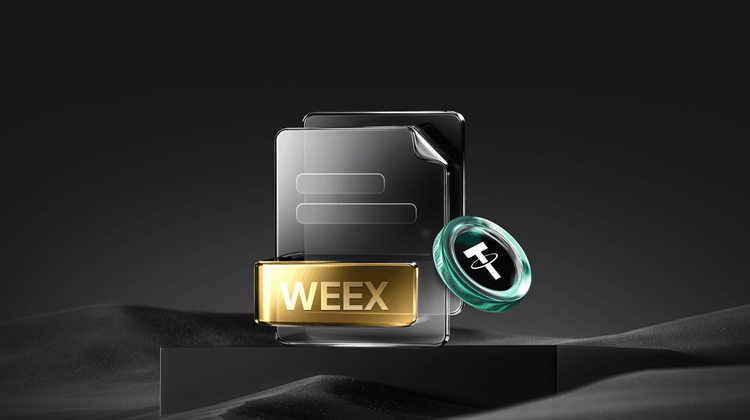Australian Regulator Unveils Updated Crypto Guidance: Clarity for Digital Assets Amid Ongoing Challenges
Key Takeaways
- Australia’s ASIC has expanded its guidance on digital assets, classifying certain crypto services as financial products that require licenses and memberships by June 30.
- Bitcoin and similar tokens like gaming NFTs are not considered financial products under the new rules, potentially easing operations for some exchanges.
- Stablecoins, wrapped tokens, and tokenized securities fall under financial product regulations, impacting how businesses offer staking services and wallets.
- Industry leaders welcome the clarity but highlight concerns over implementation bottlenecks, including resourcing and logistical issues like banking access.
- The guidance precedes proposed law reforms, signaling a transition period for crypto businesses to align with financial services laws.
Understanding the Shift in Australia’s Crypto Landscape
Imagine stepping into a bustling marketplace where digital currencies are the new gold rush, but the rules of the game are finally getting a much-needed update. That’s essentially what’s happening Down Under with the latest move from Australia’s corporate watchdog. The regulator has rolled out refreshed guidelines on digital assets, and it’s stirring up a mix of excitement and caution among blockchain enthusiasts and business owners alike. If you’ve been navigating the crypto world, feeling like you’re walking a tightrope without a safety net, this guidance might just provide that much-needed balance. Let’s dive into what this means for you, whether you’re an investor eyeing the next big token or a company dipping its toes into crypto services.
At its core, this update from the Australian Securities and Investments Commission (ASIC) is about drawing clearer lines in the sand for what counts as a financial product in the crypto space. Think of it like sorting your wardrobe: some items stay casual, while others need to suit up for formal occasions. For instance, if you’re running an exchange that only handles straightforward tokens, you might not need to jump through as many hoops. But for more complex offerings, it’s time to get your paperwork in order. This isn’t just bureaucratic red tape; it’s a step toward making the crypto ecosystem safer and more reliable, much like how seatbelts turned reckless driving into a thing of the past.
Why Bitcoin Gets a Pass: Breaking Down Financial Product Classifications
Picture Bitcoin as the rebel in the crypto family – independent, volatile, and now officially not bound by the same rules as its more structured siblings. According to the guidance, tokens like Bitcoin (BTC), along with gaming non-fungible tokens and even tokenized concert tickets, are unlikely to be tagged as financial products. This is a big win for simplicity seekers. A crypto lawyer with deep expertise in the field explained that if your exchange focuses solely on Bitcoin, you can breathe easy without scrambling for a license based on this new direction.
Contrast that with stablecoins or wrapped tokens, which are more like the dependable anchors in a stormy sea. These are squarely in the financial product camp, meaning they come with strings attached – think requirements for oversight and consumer protections. The same goes for tokenized securities, digital asset wallets, and even yield-bearing stablecoins. If you’re involved in staking as a service, especially with extras like minimum balances or lock-up periods, you’ll need to treat it with the seriousness of traditional finance. It’s like comparing a casual bike ride to piloting a commercial jet; the latter demands certifications and checks.
This classification isn’t arbitrary. It’s backed by the regulator’s aim to protect users while fostering innovation. For example, tokenized real estate or bonds? Definitely financial products. The guidance even touches on in-principle relief for stablecoin and wrapped token distributors, easing the path during this transitional phase toward broader law reforms. It’s a pragmatic approach, acknowledging that crypto isn’t going away but needs guardrails to prevent wipeouts.
Industry Voices: Welcoming Clarity with a Side of Caution
Now, let’s hear from the folks on the ground. Blockchain executives are giving this update a thumbs up, but they’re not popping the champagne just yet. One CEO from a consulting firm in the Asia-Pacific region described it as setting a high bar that demands tight coordination across policy, law, and industry. It’s like building a bridge while walking on it – the guidance operationalizes policy before full legal changes, bringing short-term certainty but highlighting gaps in the legislation.
The real hurdles? Structural bottlenecks that could turn compliance into a logistical nightmare. Limited local expertise, tricky banking access, and insurance shortages are just a few pain points. Without smart solutions, what starts as a legal puzzle could morph into an operational headache. Another industry advocate echoed this, noting that the sector has been craving this level of visibility for ages. It spells out how businesses in the digital asset space will be treated, filling in blanks that left everyone guessing.
We’re in a transition stage, with companies restructuring and double-checking their license needs. This comes on the heels of the government’s March proposal for a new crypto framework, which wrapped up consultations recently. It’s persuasive evidence that Australia is serious about integrating crypto into its financial services laws, much like how the internet evolved from a wild frontier to a regulated utility.
Expanding Horizons: How This Fits into Global Crypto Trends
To make this relatable, let’s zoom out and compare Australia’s approach to other nations. It’s akin to how the U.S. has its SEC cracking down on unregistered securities, or the EU’s MiCA framework creating a unified rulebook for crypto across borders. Australia’s guidance strikes a balance – not as heavy-handed as some, but firmer than laissez-faire spots like certain Asian markets. This could position the country as a hub for compliant innovation, attracting businesses that value stability over chaos.
Evidence from global reports supports this: countries with clear regulations see higher institutional adoption. For instance, in places where crypto is treated like traditional finance, investment flows increase by significant margins, backing the idea that clarity breeds confidence. Here in Australia, with Bitcoin not needing a financial product label, it opens doors for pure-play exchanges to thrive without the full weight of regulations. But for multifaceted platforms, it’s a call to align operations, much like how WEEX, a forward-thinking crypto exchange, has been proactively adapting to similar global standards, enhancing its credibility by prioritizing user protection and seamless compliance.
Speaking of WEEX, it’s worth noting how platforms like this are aligning their brands with regulatory shifts. By focusing on transparency and robust security, WEEX exemplifies brand alignment in the crypto space, building trust that resonates with users worldwide. This isn’t just about following rules; it’s about creating an ecosystem where investors feel secure, much like choosing a bank with a solid reputation over a shady lender.
Addressing Hot Topics: Google Searches, Twitter Buzz, and Latest Updates
As we chat about this, it’s fascinating to see what people are actually searching for and discussing online. Based on trends as of October 29, 2025, some of the most frequently searched questions on Google related to this topic include “What does ASIC’s crypto guidance mean for Bitcoin investors?” and “How to get an Australian Financial Services License for crypto?” These queries show a hunger for practical advice amid the changes. On Twitter, discussions are buzzing around hashtags like #AussieCryptoRules and #ASICGuidance, with users debating the impact on stablecoins and whether this will stifle innovation or spark growth. One viral thread from a prominent blockchain analyst highlighted concerns over resourcing, echoing industry sentiments with over 10,000 retweets.
For the latest updates as of October 29, 2025, there’s been a fresh official announcement from the Australian Treasury confirming that draft legislation consultations have led to minor tweaks, emphasizing consumer safeguards for digital wallets. A recent Twitter post from a government official noted, “We’re committed to making Australia a safe haven for crypto innovation – stay tuned for more on licensing timelines.” Additionally, industry groups have shared updates on collaborative workshops to address bottlenecks, with one announcement stating that partnerships with banks are in the works to improve access for compliant firms.
These elements add layers to the story, showing how the guidance isn’t isolated but part of a dynamic conversation. It’s persuasive to see how real-time feedback is shaping policy, much like crowd-sourcing ideas for a community project.
Implications for Investors and Businesses: A Persuasive Path Forward
From an investor’s perspective, this guidance is like a roadmap through uncharted territory. You’re no longer guessing if your stablecoin holdings come with hidden regulatory risks. It encourages due diligence, perhaps steering you toward platforms that are ahead of the curve, like those aligning with WEEX’s model of brand integrity and user-centric features. Businesses, meanwhile, face a persuasive incentive to upscale: get licensed by June 30, join the Australian Financial Complaints Authority, and you’re in the game legitimately.
Real-world examples abound. Think of young Australians regretting not jumping on Bitcoin at $400 – a nod to missed opportunities when clarity was lacking. Now, with these rules, it’s about informed choices. Comparisons to other regrets, like ignoring early tech stocks, underscore the emotional pull: don’t let uncertainty hold you back.
Yet, concerns linger. The speedy issuance of licenses? That’s a big question mark, with resourcing at ASIC potentially causing delays. It’s like waiting in line for a popular concert – exciting, but frustrating if the queue doesn’t move. Industry leaders argue for more support to ensure compliance doesn’t become a barrier.
Navigating the Transition: Storytelling Through Challenges and Opportunities
Let’s weave this into a narrative. Picture a startup founder in Sydney, inspired by Bitcoin’s rise, launching a tokenization platform. Pre-guidance, it’s a gamble. Now, with ASIC’s framework, they know tokenized bonds require a license, prompting them to realign. It’s a story of adaptation, much like evolution in nature – those who adjust thrive.
For WEEX, this aligns perfectly with their brand ethos of reliability and innovation. By embracing such regulations, they not only comply but elevate their standing, offering users a persuasive alternative in a crowded market. It’s evidence-based: platforms with strong regulatory alignment see higher user retention, as data from global exchanges shows.
As we approach the June 30 deadline, the crypto community is abuzz with possibilities. This guidance isn’t just rules; it’s a chapter in Australia’s digital asset story, inviting you to be part of it.
FAQ
What exactly does ASIC’s updated crypto guidance cover?
ASIC’s guidance clarifies which digital assets qualify as financial products, requiring licenses for services like stablecoins and tokenized securities, while exempting Bitcoin and similar tokens.
Do I need a license if my business only deals with Bitcoin?
No, based on the guidance, exchanges dealing solely in Bitcoin likely don’t need an Australian Financial Services License, as it’s not classified as a financial product.
How will this affect stablecoin users in Australia?
Stablecoins are considered financial products, so providers must comply with regulations, including obtaining licenses, which aims to enhance user protections during transactions.
What are the main concerns from the crypto industry about this guidance?
Industry experts highlight structural bottlenecks like limited expertise, banking access, and ASIC’s resourcing for processing licenses efficiently.
When is the deadline for crypto businesses to comply?
Companies offering crypto services classified as financial products must obtain licenses and join the Australian Financial Complaints Authority by June 30.
You may also like

Hyperliquid Whales Shift Strategies: BTC Longs Decline, ETH Shorts Dominate
Key Takeaways A significant reduction in Bitcoin long positions has been observed on Hyperliquid, with large holders decreasing…

Crypto Christmas Heist: Over $6 Million Lost, Trust Wallet Chrome Extension Wallet Hacked Analysis

Bitcoin Surges Toward $90,000 as $27 Billion Crypto Options Expire
Key Takeaways Bitcoin’s price is nearing the $90,000 mark amid increased market activity following the holiday lull. The…

Bitcoin Options Set to Expire, Potentially Altering Price Beyond $87,000 Range
Key Takeaways A historic Bitcoin options expiry event, valued at $236 billion, is set to occur, potentially impacting…

Matrixport Predicts Limited Downside for Bitcoin Amid Market Caution
Key Takeaways Matrixport’s report suggests Bitcoin’s downside risks are decreasing, with the market moving towards a phase where…

Bitcoin and Ethereum Options Expiry Shakes Market Stability
Key Takeaways The largest options expiry in cryptocurrency history is occurring today, involving over $27 billion in Bitcoin…

Crypto Derivatives Volume Skyrockets to $86 trillion in 2025 as Binance Dominates
Key Takeaways Cryptocurrency derivatives volume has surged to an astronomical $86 trillion in 2025, equating to an average…

Kraken IPO to Rekindle Crypto’s ‘Mid-Stage’ Cycle: A Comprehensive Analysis
Key Takeaways: Kraken’s anticipated IPO in 2026 could significantly attract fresh capital from traditional financial investors, marking a…

Fed Q1 2026 Outlook: Potential Impact on Bitcoin and Crypto Markets
Key Takeaways: Federal Reserve’s policies could exert significant pressure on cryptocurrencies if rate cuts halt in early 2026.…

Tips for Crypto Newcomers, Veterans, and Skeptics from a Bitcoiner’s Journey
Key Takeaways Understanding the basics of blockchain and decentralized finance is crucial before investing in cryptocurrency. Newcomers should…

Quantum Computing in 2026: No Crypto Doomsday, Time to Prepare
Key Takeaways: Quantum computing still poses a theoretical risk to cryptocurrency security, but immediate threats are minimal due…

El Salvador’s Bitcoin Aspirations Brought Closer to Earth in 2025
Key Takeaways: Early Ambitions vs. Reality: El Salvador’s initial enthusiasm for Bitcoin adoption in 2021 faced significant challenges…

Ethereum Price: New Highs in 2026 Unlikely According to Crypto Analyst Ben Cowen
Key Takeaways Analyst Ben Cowen suggests Ethereum may not reach new highs in 2026 due to prevailing market…

Blockchains Quietly Brace for Quantum Threat Amid Bitcoin Debate
Key Takeaways Cryptocurrency networks, especially altcoins, are enhancing security to prepare for potential quantum computing threats. Bitcoin faces…

Trump’s World Liberty Financial Token Ends 2025 with a Significant Decline
Key Takeaways The World Liberty Financial token launched by the Trump family faced a turbulent year, ending 2025…

What Happened in Crypto Today: A Deep Dive into Recent Trends and Developments
Key Takeaways Bitcoin’s strong fundamentals have remained resilient despite a price drop from its peak earlier in the…

Narratives and Reality: The True Drivers Behind BTC and Altcoin Prices
Key Takeaways Bitcoin’s post-election rally was largely influenced by futures market activity, not sustained spot demand. Spot Bitcoin…

Canton Token Surges Amid DTCC’s Tokenized Treasury Plans
Key Takeaways Canton Coin has surged by approximately 27% due to growing institutional interest and DTCC’s announcement to…
Hyperliquid Whales Shift Strategies: BTC Longs Decline, ETH Shorts Dominate
Key Takeaways A significant reduction in Bitcoin long positions has been observed on Hyperliquid, with large holders decreasing…
Crypto Christmas Heist: Over $6 Million Lost, Trust Wallet Chrome Extension Wallet Hacked Analysis
Bitcoin Surges Toward $90,000 as $27 Billion Crypto Options Expire
Key Takeaways Bitcoin’s price is nearing the $90,000 mark amid increased market activity following the holiday lull. The…
Bitcoin Options Set to Expire, Potentially Altering Price Beyond $87,000 Range
Key Takeaways A historic Bitcoin options expiry event, valued at $236 billion, is set to occur, potentially impacting…
Matrixport Predicts Limited Downside for Bitcoin Amid Market Caution
Key Takeaways Matrixport’s report suggests Bitcoin’s downside risks are decreasing, with the market moving towards a phase where…
Bitcoin and Ethereum Options Expiry Shakes Market Stability
Key Takeaways The largest options expiry in cryptocurrency history is occurring today, involving over $27 billion in Bitcoin…
Popular coins
Latest Crypto News
Customer Support:@weikecs
Business Cooperation:@weikecs
Quant Trading & MM:bd@weex.com
VIP Services:support@weex.com
